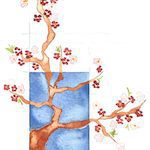What You Can Expect
Results can often be seen with one treatment but three or more treatments are advised to determine the effectiveness. Any changes within 1 to 3 days after a treatment can be attributed to Acupuncture provided there have been no other types of treatment. The amount of treatments depends on a few factors:
- The severity of the illness. A condition that is mild responds more quickly while something that is much more entrenched requires more treatment.
- The time the condition has existed. A condition that has only gone on for a few days or a few weeks will respond to treatment faster than a condition that has gone on for many months or years.
- The overall health of the person. Someone in relatively robust health will respond more quickly while someone whose health is not as good will take a bit longer
These are overall guidelines and are not necessarily true for all people. I have treated people in relatively poor health with a condition that has gone on for sometime with dramatic results in a few treatments.
How Acupuncture Works
Acupuncture involves the stimulation of Acupuncture Points by way of needles, heat (moxibustion) or magnets. Each type of stimulation has a distinct action. Acupressure, which is pressure applied to Acupuncture points also works and in some cases, instruction is given to use at home but Acupressure has a milder effect on Acupuncture points as opposed to needles or heat (moxibustion). Acupuncture is an electromagnetic phenomenon which the Chinese call "Qi" . The Chinese mapped out these pathways of "Qi" 2500 years ago.
At various points along the pathways of these meridians are the Acupuncture Points that move and balance this Qi when stimulation is applied. When Acupuncture Points are stimulated, this Qi is moved and stimulated causing homeostasis to return to various organs and tissues in the body. This is what is meant when it is said that Acupuncture is balancing. Acupuncture therefore, is excellent for "functional disorders" which means that a person has symptoms but traditional Western Medical Tests and Diagnosis might not show a problem. In this way, Acupuncture can also be PREVENTATIVE for future illness. Here I must state that Acupuncture is NOT a substitute for Mainstream Medical Care by a Qualified Physician but is complementary.
